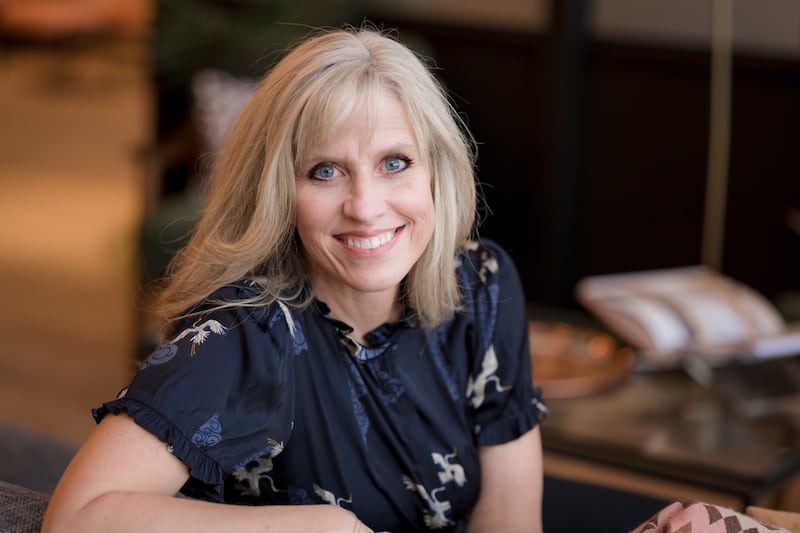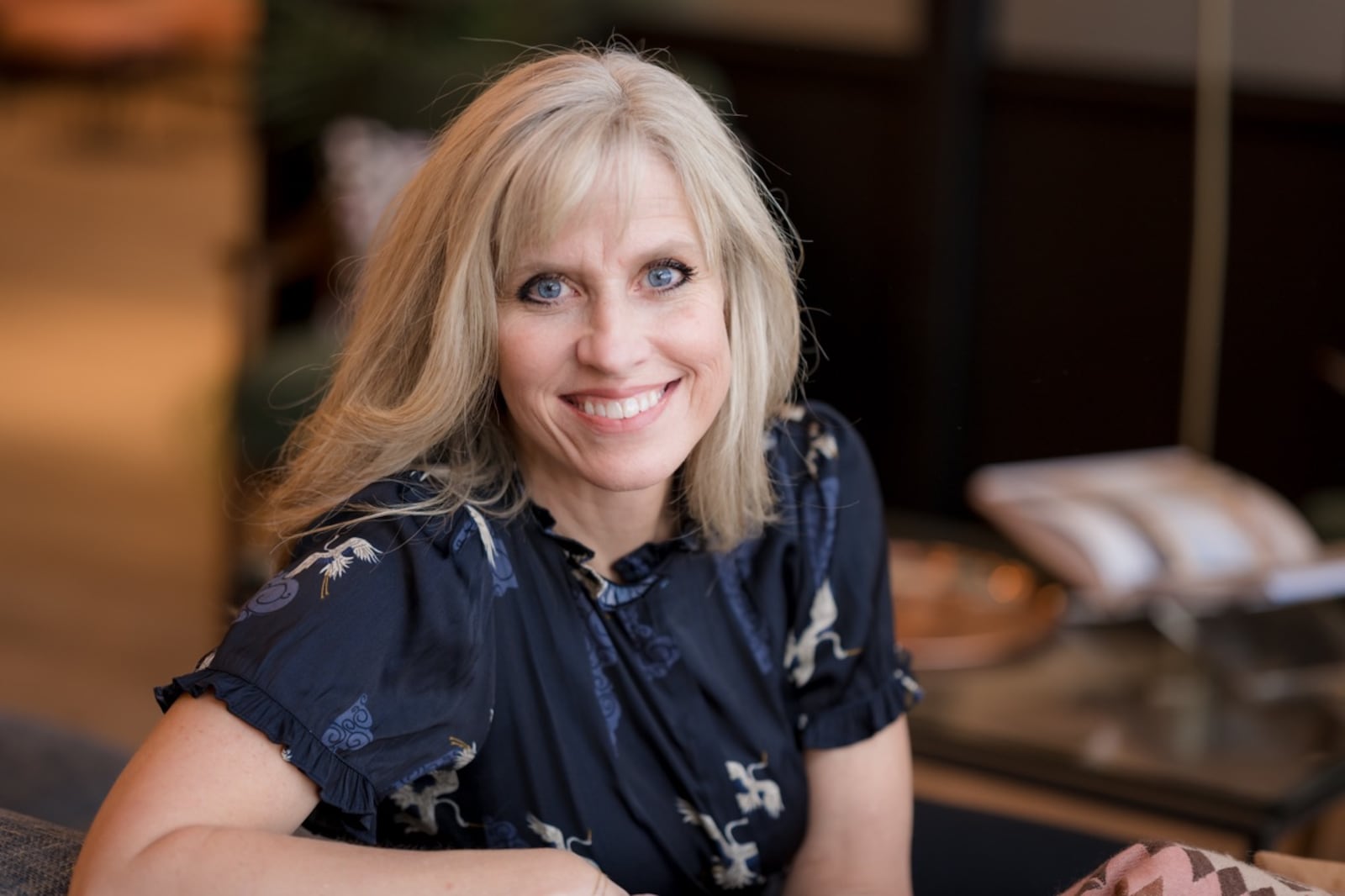One of my favorite photos from childhood is a picture of my grandfather holding me up to look into one of the large commercial ovens at his bakery. I love the look on his face because it’s as if he’s seeing inside that oven for the very first time.
My grandfather, Clayton Dunford, founded Dunford Bakers, which became famous for its iconic chocolate Dunford donuts—a staple in Utah households for generations. But behind Dunford Bakers’ success was his mother, Eleanor Hazel Love, my great-grandmother and the original baker.
Eleanor became a single mom at age 37 when her husband died from complications of a stroke. During the height of the Great Depression, Eleanor was determined to make ends meet and provide for her family. Her grit not only supported her three children but also laid the foundation for a family business. Her story has always inspired me, especially as I’ve navigated my own journey as a single mom, building Elavare to help other mothers return to the workforce.
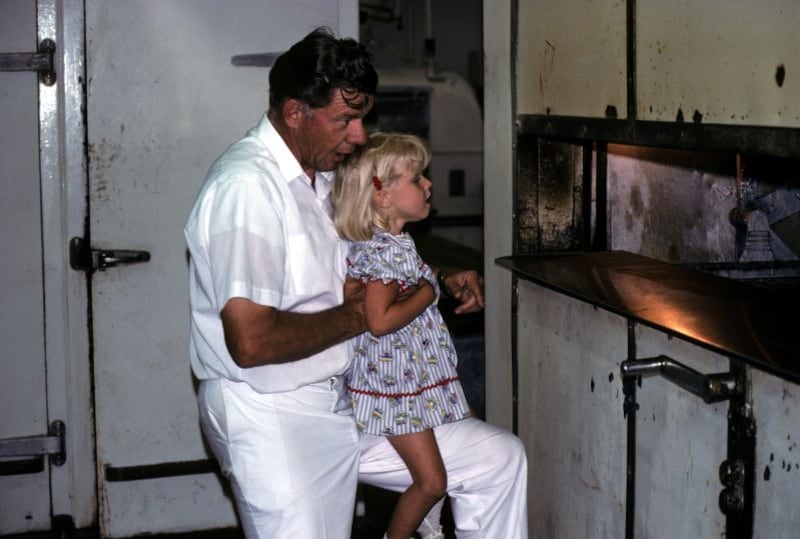
The path unplanned
I grew up in Dayton, Ohio, the second of seven children in a family where money was always tight. By age 10, I had a paper route to buy my own clothes. By 12, I was babysitting regularly. When we moved to Georgia, I worked at Baskin-Robbins and saved every dime I earned. My parents encouraged college, but we knew we’d have to pay for it ourselves.
The only school I ever wanted to go to was Brigham Young University (BYU). As soon as I arrived on campus, I immediately got involved in student government. I loved BYU, and halfway into my sophomore year, I was married.
Marrying young wasn’t part of my plan. I dreamed of studying abroad, serving a mission for The Church of Jesus Christ of Latter-day Saints, and traveling the world. Instead, I graduated with an advertising degree in three years so I could support my husband through his MBA at Wharton School.
Over the next two decades, my dreams took a back seat as we moved from Philadelphia to New York City to Valley Forge and then back to Provo. I poured my energy into raising our five children and supporting my husband’s career. I believed that building a strong home was my most important contribution.
Then, 10 years ago, everything changed. After nearly 25 years of marriage, my husband and I went through a divorce. During our financial reconciliation, I learned that our financial situation was worse than I thought. Suddenly, I had to re-enter the workforce to provide for my family.
I was terrified. Who would hire me? I felt completely unqualified.
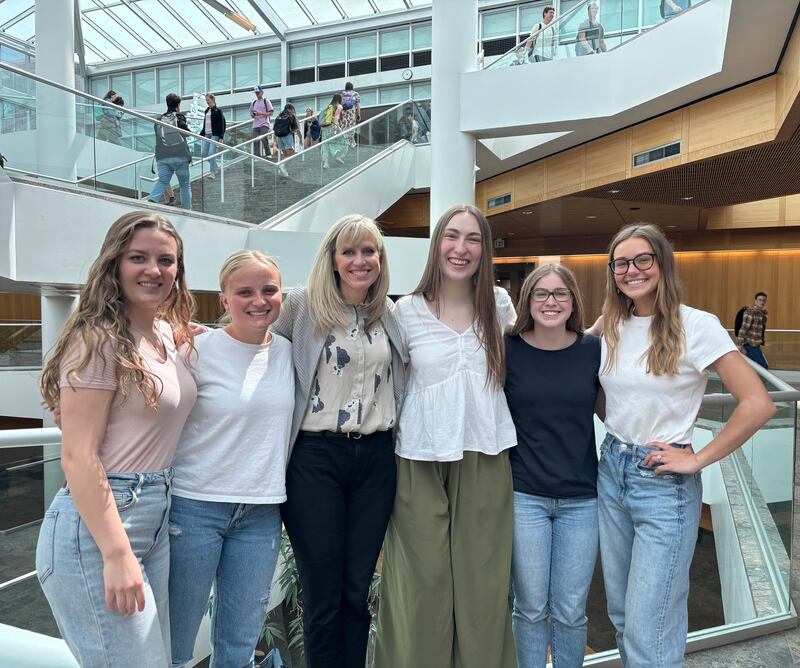
Finding strength in starting over
After being out of the workforce for 18 years, I worried that my skills were outdated — or worse, nonexistent. Even though I had an eBay business on the side, I hadn’t really kept up with technology and hadn’t written a resume in decades. My job experience, in my mind, amounted to carpool schedules, grocery lists and PTA meetings. I wasn’t completely sure of how I could contribute.
I also had no clear sense of direction. Even though I had graduated with a degree in advertising, everything was now digital, and I no longer felt excited about it. I was starting from scratch and unsure where to begin. All I knew was that I had to get a job and start making money as quickly as possible. I was in survival mode.
After applying to what felt like hundreds of jobs, I was finally hired at KT Tape as their marketing coordinator. As I picked up new skills and built on them, my confidence grew. I began to recognize that the strengths I had developed over the years as a stay-at-home mom — event planning, project management, contract negotiation, conflict resolution, time management and communication — were the very skills employers want.
That realization planted the seed for Elavare. All those years, I had been developing valuable skills. I just hadn’t recognized them.
Over time, my confidence continued to grow. At the urging of my former church bishop and another friend, I returned to BYU, earned my MBA and pivoted to tech. At Amazon Web Services (AWS), I excelled and grew both professionally and personally, but I also felt a growing need to make more of an impact. Looking for advice, I reached out to my cousin, who was a seasoned entrepreneur. I knew I wanted to help people, but since I wasn’t a successful entrepreneur or influencer, I didn’t think I had anything to offer.
As I talked with my cousin, he reminded me that for years, I had been mentoring mothers and helping them to return to the workforce. He could see how passionate I was about it and suggested I could make an even bigger impact by sharing my story and what I’d learned.
Despite my cousin’s encouragement, I still doubted myself. I questioned whether I could truly scale my knowledge and experiences in a way that would make a meaningful impact.
I decided to test the idea with an eight-week workshop series teaching mothers the skills I’d learned to re-enter the workforce. Over the course of two months, nearly 20 mothers attended the classes, but inconsistently. It was discouraging, and I didn’t think my efforts were making a difference.
However, on the day of the last workshop, one of the mothers handed me an envelope. Inside was a handwritten note thanking me for putting on the series. In it, she wrote, “I am confident you will help many more women, and I can’t thank you enough for what you have created and shared with us. It has genuinely had a tremendous impact on me.” This was just the encouragement I needed.
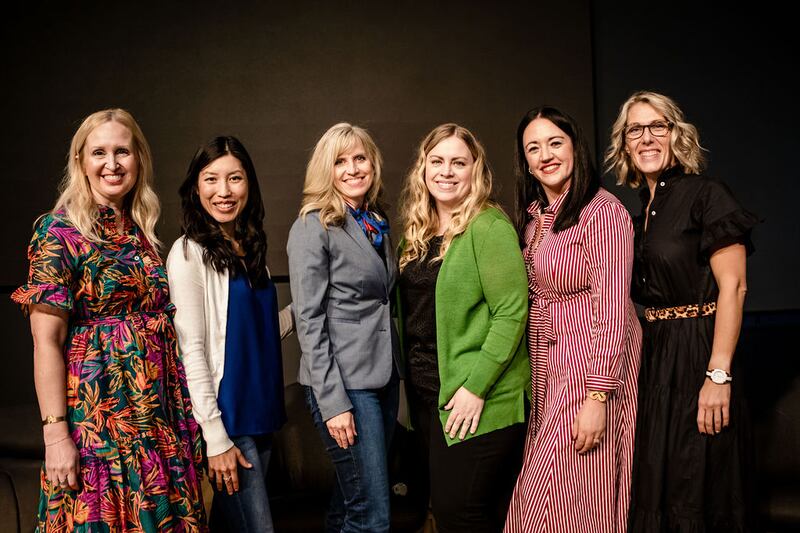
Building bridges for others
At the same time I was running the workshop, I had partnered with BYU’s On-Campus Internship (OCI) program to interview over 100 mothers who were currently working or considering a return to work. Their feedback confirmed what my cousin had suggested — Elavare wasn’t just wanted; it was needed.
At the end of the semester, the student OCI team made several recommendations to help scale my efforts. One of those recommendations was to host an in-person event to equip mothers with the tools and confidence to reenter the workforce.
I didn’t want to plan a large event. I knew how much time and effort it would take, and I was nervous no one would come. But as I thought about it more, I realized the event wasn’t just about teaching skills — it was about building confidence, creating a community and showing mothers they weren’t alone. I knew this was exactly what I had to do.
This past October, the Elavare Foundation hosted the first annual Elavare Summit at Utah Valley University in partnership with another team of BYU OCI students. Receiving the nonprofit designation for the Elavare Foundation helped us generate more interest and support from the community and local businesses. The event brought together experts to teach mothers how to translate “mom skills” into work skills, write resumes and cover letters, interview confidently and navigate job searches. The response was overwhelming — not only from the mothers who attended but also from local businesses like Chatbooks, Mixhers, Clearlink, Thread Wallets, Just Ingredients, Minky Couture, and Mountain America Credit Union, who sponsored the event.
After the summit, I knew there was more work to be done. It became clear that the foundation needed ongoing funding to sustain and scale its mission. That’s when I launched Elavare LLC, a for-profit business designed to generate revenue to support the foundation while expanding programs and resources for mothers.
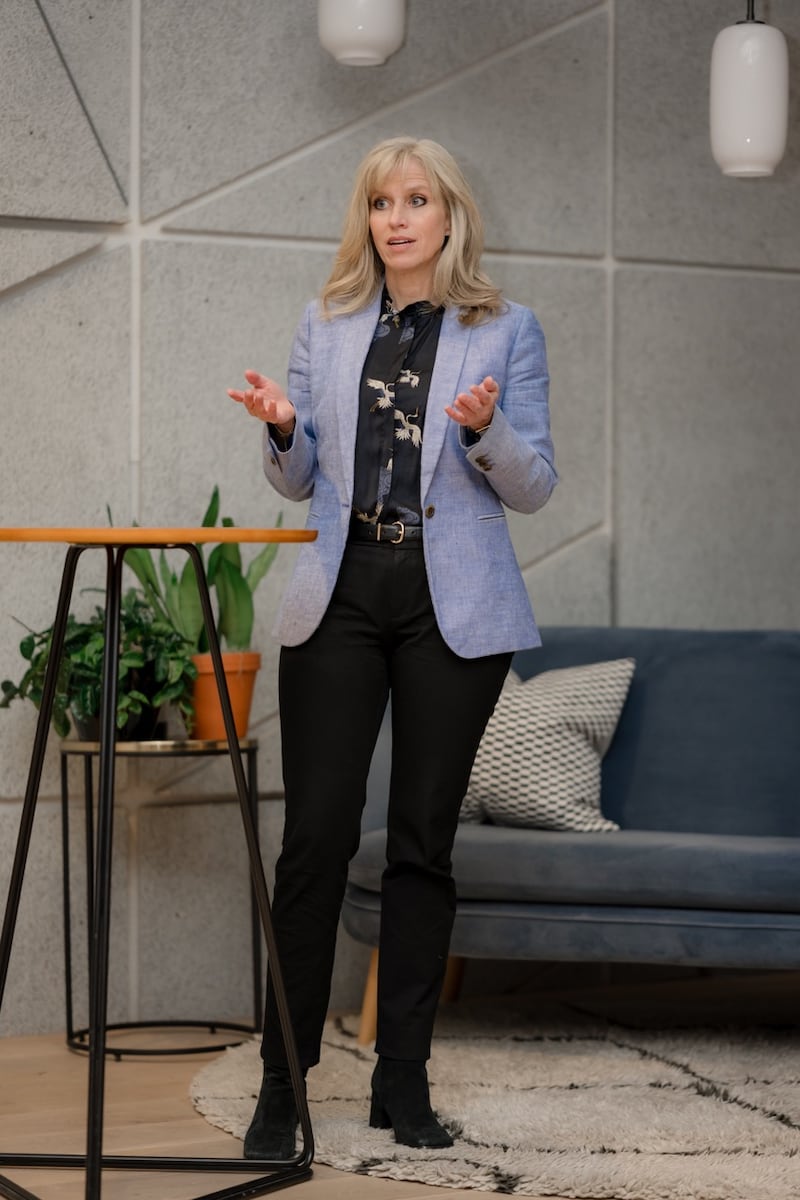
Lighting the path
Today, we’re building on that momentum as we prepare to launch the Elavare Academy, an eight-week program designed to help mothers re-enter the workforce. Through confidence-building workshops, online training, group mentorship, individual coaching and returnships (internships for returners), the academy will equip women with the tools and skills they need to successfully transition back into the workplace. Graduates emerge as vetted, skilled professionals who are ready to contribute from day one. They will leave the program with foundational technical skills in Microsoft and Google Suite, as well as the confidence to interview, network and succeed in today’s workplace. For employers who partner with Elavare, the Elavare Academy reassures businesses that they’re hiring capable, motivated and job-ready talent — not just checking a DEI box.
I created Elavare to offer the resources I wish I had when I re-entered the workforce and to ensure no mother has to make the journey alone. Whether driven by financial need or personal fulfillment, mothers deserve a clear path back to meaningful work.
Winston Churchill once said, “We make a living by what we get, but we make a life by what we give.” For me, Elavare is about giving back and building others up. After years of forging my unconventional career path, I found my purpose in helping others rediscover theirs.
